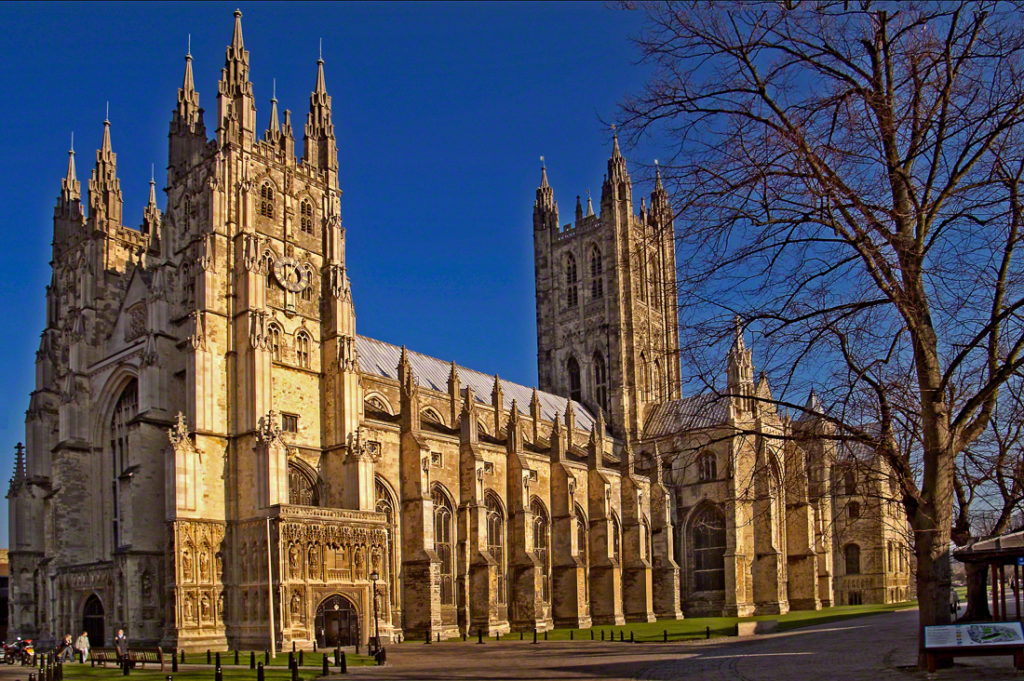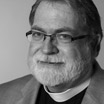This has been a very interesting week in the life of the Anglican Communion and the life of the Anglican Church in North America. I have been hearing from many people who are disappointed by the outcome of the Canterbury Primates meeting just concluded and its Communique. As I wrote recently, the final Communique of the Canterbury Primates Meeting raised still unanswered questions about who actually wrote the Communique, whether it was in fact the perspective of all the Primates present, and why none of them actually signed it! The Chairman of the Global Anglican Future Conference (GAFCON), the Most Reverend Nicholas Okoh (Nigeria) has responded with a letter blistering the Communique for claiming that the Primates are “walking together” when in fact over half of all Anglicans worldwide were NOT represented at the Primates gathering due to the absence of Nigeria, Uganda, Rwanda and others. The Chairman’s letter is a must read.
He also admonishes the Archbishop of Canterbury for giving the back-hand of fellowship to Anglicans in North America—thereby repeating the error of his immediate predecessor. Archbishop Okoh also points to the story beneath the story—the media interview in which the Archbishop of Canterbury could not answer a direct question posed to him about human sexuality. Archbishop Welby neither referred to the Bible, nor to any Christian vision of wholeness rooted in the Scriptures, not to Jesus Christ, nor to the teaching on the limits of sexual expression contained in Lambeth Resolution I.10 (1998) upholding sexual expression between a man and a woman in marriage and abstinence otherwise. It seems the Archbishop of Canterbury has more confidence in his own skills to manage and resolve conflict than he does in the clarity and authority of the Bible and two thousand years of Christian teaching. As Archbishop Okoh concludes, Canterbury’s leadership and inability to publicly articulate a vision of the wholeness of life in Christ should be an embarrassment to all Anglicans worldwide.
Dr. Steven Noll is always worth reading! He has again placed the current controversies, including the Canterbury Primates Communique 2017, in the context of his encyclopedic knowledge of Anglican Communion meetings. In his essay this week on “Ferrying the Primates across the Rubicon”, he demonstrates how the Primates have been “co-opted” by the Church of England’s leadership in compromising with the culture on matters of human sexuality. He demonstrates how this Primates Meeting reverses the entire framework established by the resolutions of the Lambeth Conference of 1998. There was some hope that the Primates’ Meeting could be the one instrument that could address the crisis of false teaching in the Anglican Communion. Alas, such hopes have been dashed by this recent Primates’ Meeting.
And that’s exactly why I have written my book, Anglican Conciliarism. I believe there is a light at the end of the tunnel of dysfunctional Church structures. It’s the possibility of taking the way we make decisions at all other levels of the Churches of the Anglican Communion and simply extrapolating it to the Global Anglican Communion level of governance, in a way that has never been tried before. It’s a matter of going back to the Bible, looking at the roots of “councils” or synods that we find in the Jerusalem Council of Acts 15, where the Church was also facing questions about how to remain faithful to the Scriptures while reaching lost and broken people (in this case, the Gentiles) in a culture that is hostile to the Gospel. Anglican Conciliarism looks at the fruit of such Godly decision making in the great Ecumenical Councils, how that influenced Reformational Anglicanism, and how such decision making could be implemented with new “conciliar” structures within the Communion of Anglican Churches today.
I’m passionate about this because I believe it is a strategic piece that will enable Anglicans to fulfill Christ’s Great Commission to make disciples (Christ-followers in every way) of all nations. (Matthew 28:16-20). I know—structures are not the whole answer. But they are a critical part of the answer to the missiological challenges before us. To put it in simpler and less technical terms, it’s about the need for both the fire and the fireplace. The fireplace is the structure within which the fire can burn brightly and its warmth radiate outward with focus. Without the fireplace the fire can simply burn out. Without the fire, the fireplace is nothing but cold stone, dead and lifeless. The fire is the good news of Jesus Christ—the Gospel! But the fireplace is the ecclesial structures that will enable Biblically faithful Anglicans to continue to proclaim, “the faith once delivered to the saints” (Jude 3), the Good news of Jesus Christ—undeterred and undistracted by false teaching.
“Why can’t we just leave these crises behind and get on with mission?!” I hear that a lot and understand deeply the frustration and weariness behind that question. But the fact is that the crises of false teaching and rescuing lost people with the Good news of Jesus Christ (mission) are related. Last week I preached on “How can we keep the main thing (the Great Commission) the main thing?” from Philippians 4:2-13. It’s the story of the conflict between Euodia and Syntyche, two leaders in the church at Philippi who were fighting with each other. As a result, Gospel ministry was suffering, dead in the water. We don’t know what the conflict was about—but the fact that Paul mentions them by name as faithful “yokefellow” and appeals to them to be of the same mind in the LORD (Phil 4:2 AMP) speaks volumes about the importance of the clarity of what we are preaching. What the Anglican Communion lacks is the structures, the fireplace if you will, to clarify the limits of what we preach to a lost world so that people will find their answer in Jesus Christ and him alone.
There are many things Paul exhorts them to do—to pray, to give thanks, to focus on the positive, to just do it (“put it into practice” 4:9). You can watch the whole message here but it all boils down to this: we need to focus on Jesus Christ. All eyes on him. It’s all about Jesus. May we find every way possible to make him the main thing!
The Rev. Canon Phil Ashey is President & CEO of the American Anglican Council.



